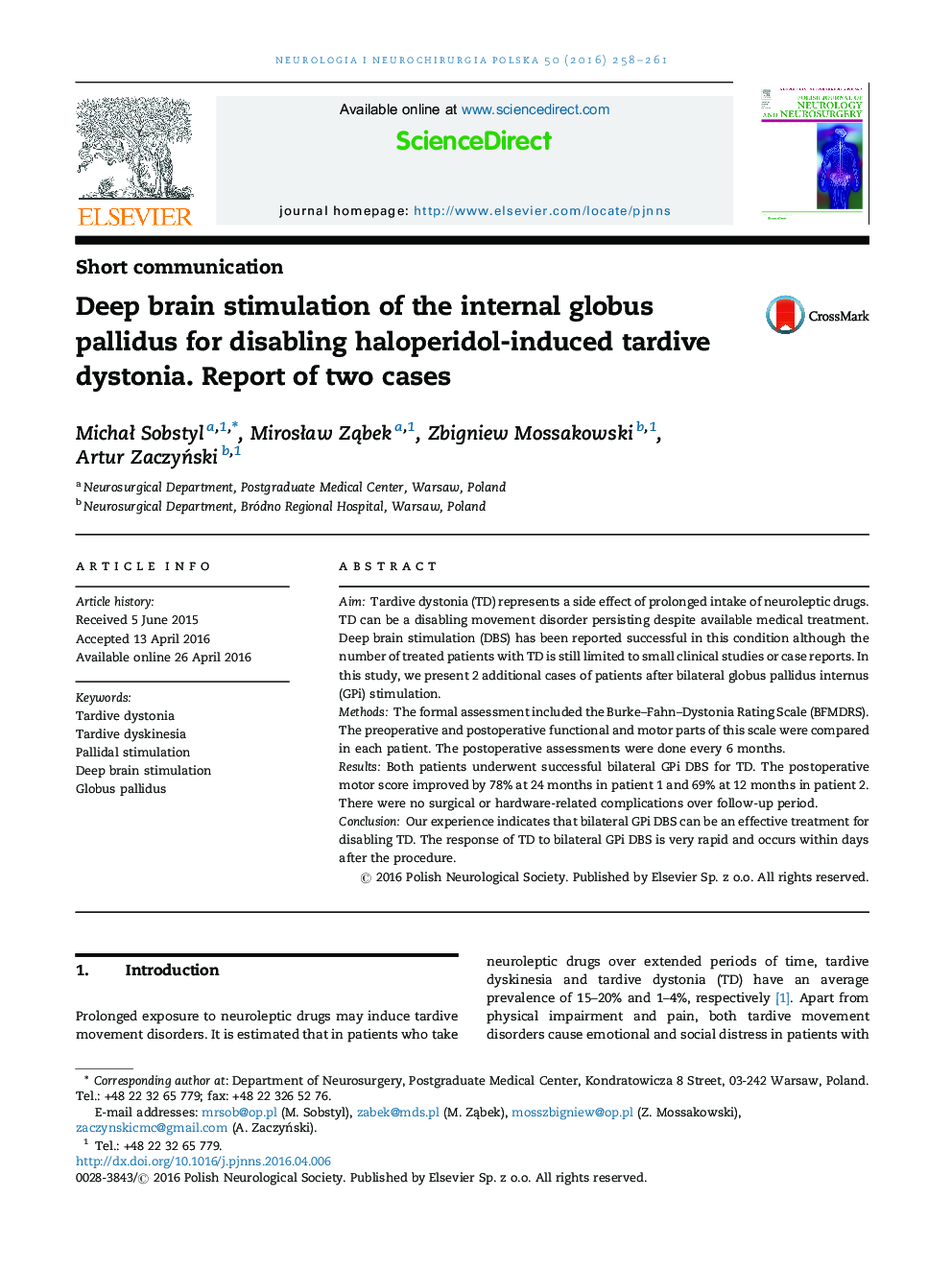| Article ID | Journal | Published Year | Pages | File Type |
|---|---|---|---|---|
| 2152558 | Neurologia i Neurochirurgia Polska | 2016 | 4 Pages |
AimTardive dystonia (TD) represents a side effect of prolonged intake of neuroleptic drugs. TD can be a disabling movement disorder persisting despite available medical treatment. Deep brain stimulation (DBS) has been reported successful in this condition although the number of treated patients with TD is still limited to small clinical studies or case reports. In this study, we present 2 additional cases of patients after bilateral globus pallidus internus (GPi) stimulation.MethodsThe formal assessment included the Burke–Fahn–Dystonia Rating Scale (BFMDRS). The preoperative and postoperative functional and motor parts of this scale were compared in each patient. The postoperative assessments were done every 6 months.ResultsBoth patients underwent successful bilateral GPi DBS for TD. The postoperative motor score improved by 78% at 24 months in patient 1 and 69% at 12 months in patient 2. There were no surgical or hardware-related complications over follow-up period.ConclusionOur experience indicates that bilateral GPi DBS can be an effective treatment for disabling TD. The response of TD to bilateral GPi DBS is very rapid and occurs within days after the procedure.
